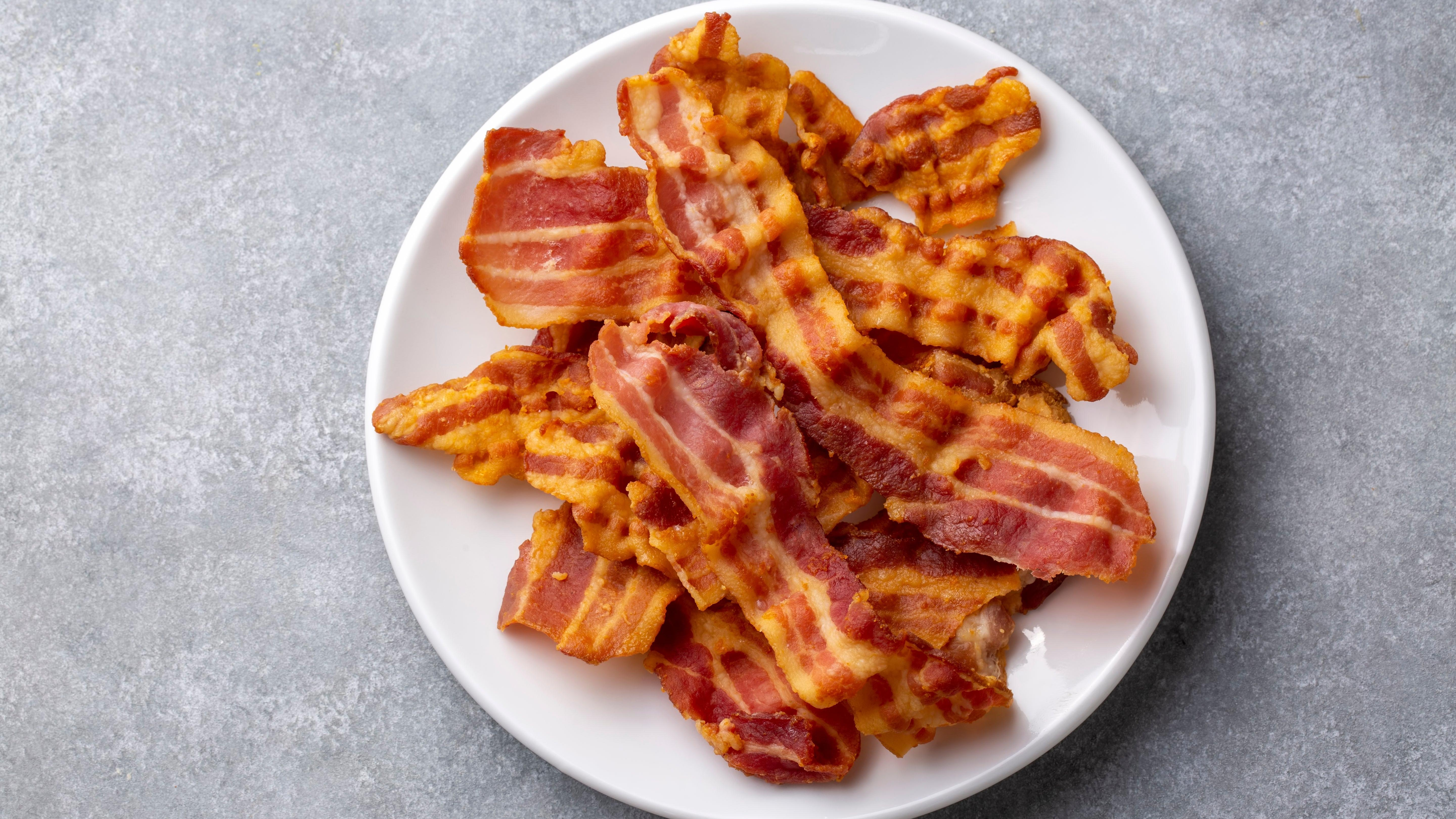California Law Could Make Bacon More Expensive For Everyone
The National Pork Producers Council thinks California is ruining pork for the rest of the country.
Adding bacon to your burger usually costs a little more, but the National Pork Producers Council says that thanks to the events playing out in an ongoing Supreme Court case (National Pork Producers Council v. Ross) it might end up costing a lot more. Vox has the full story.
A quick rundown, for those of you not familiar with the constitutional laws that govern our economy: There's a part of the Constitution called the Commerce Clause, which reads, "Congress shall have power ... To regulate commerce with foreign nations, and among the several states, and with the Indian tribes." This clause helps to prevent any individual states from passing laws that would consequently mess up free trade for the rest of the nation.
Although each state is allowed to pass its own laws, those decisions can affect markets in neighboring states and throughout the country, thanks to the way that we buy and sell goods and ship them nationwide (not to mention globally). For example, the legalization of recreational marijuana in certain states could potentially lead to an increase in demand for the drug in places where it is illegal. So vendors in states where it's legal are prohibited from selling to customers in any state where it is banned.
What is California’s Proposition 12?
Proposition 12 is what pork producers are calling out as unconstitutional. This law, passed in 2018 by the State of California, places strict regulations on farmers and the methods used in meat production, in the name of animal welfare.
The law requires that pork farmers allow no less than "24 square feet of usable floor space per pig." It places similar restrictions on egg production and veal meat, per the California Department of Food and Agriculture Animal Care Program. Egg-laying hens must be housed with a minimum of 144 square inches per hen, and calves being raised for veal must have 43 square feet per calf.
Products that are made using methods that do not comply with Proposition 12 cannot be sold in California.
Why America’s pork producers are concerned
The Pork Producers Council argues it would cost farmers a ridiculous amount of money to update their facilities to comply with the minimum space requirements. Investing in those updates would consequently raise pork prices for consumers. Vox explains that the pork industry claims the estimated costs would be $293,894,455 to $347,733,205 to comply, which averages out to an additional $13 per pig. That cost would then trickle down to that pack of bacon you're picking up in the grocery store in the form of a nearly 10% price increase.
But this would not just affect California pork producers, the Council argues. They say that, because our nation's complex supply chain makes it so difficult to track which products are eventually going to be sold in California, pork producers across the country would all have to change their setups to be compliant with Proposition 12, just in case their products end up there.
However, as much as the Council is arguing that the proposition will negatively affect the industry and consumers, some major companies seem less concerned. Hormel Foods, for example, issued a statement in which it states the company "faces no risk of material losses" in complying with the Proposition, even if there are some initial complications to their process as they become compliant. Hormel is, of course, a huge company; smaller pork operations might have a harder time shouldering those costs.
On the one hand, more expensive bacon on top of already rising inflation is a possibility that pork producers are understandably wary of. On the other hand, the law hasn't yet proven to be a hindrance to nationwide pork producers, so the Commerce Clause might not hold up as an argument against it. Moreover, it's a law that aims to protect animal welfare, not the profit margins of individual businesses that do not provide their livestock room to move, so California is unlikely to back down.
Oral arguments were heard by the Supreme Court on October 11, and it seems even the Supreme Court justices are torn on a decision, Vox reported. Until SCOTUS comes to an opinion, our pork prices hang in the balance.
